Aethir and Auros team up to boost ATH token transaction efficiency
Wednesday, August 28, 2024 3:45 PM
92
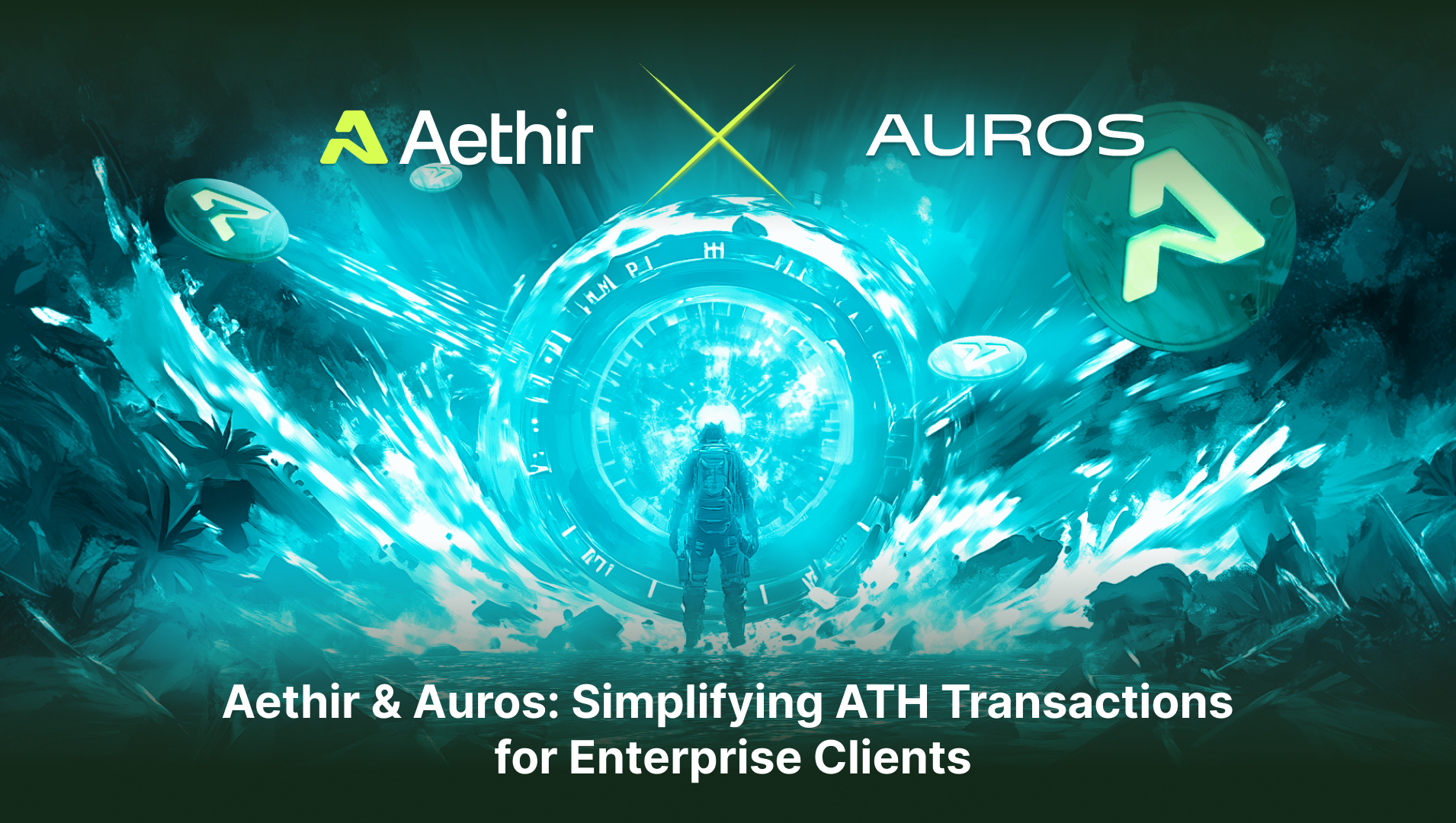
https://cryptobriefing.com/aethir-auros-ath-token-efficiency/
Buy Now at
Related News

4 days ago
IPFS Revolutionizes Data Transmission in Space with Filecoin and Lockheed MartinThe Interplanetary File System (IPFS) has made significant strides in reducing latency for data transmissions in space, as demonstrated by a successful collaboration between the Filecoin Foundation and Lockheed Martin Space. During the Consensus 2025 conference in Toronto, Marta Belcher, president of the Filecoin Foundation, revealed that they have successfully transmitted data using a version of IPFS on a satellite orbiting Earth. This adaptation enhances privacy and security by identifying data based on its content rather than its location, which is particularly beneficial for space communications. The architecture of IPFS is designed to mitigate delays, address data corruption from radiation, and enable cryptographic verification to ensure data integrity.
Belcher highlighted the challenges of data transmission from celestial bodies, noting the multi-second delay from the Moon and multi-minute delay from Mars. The IPFS system allows users to retrieve data based on a content ID from the nearest source, whether it be a personal device, a nearby satellite, or a lunar station. This decentralized approach reduces reliance on centralized data centers and improves the reliability of data storage in environments where hardware may degrade, which is crucial for maintaining the integrity of sensitive materials like satellite images.
The growing interest in decentralized archival storage among media companies and potential military applications of this technology indicate a promising future for IPFS. Belcher emphasized the power of having a deep archive accessible globally, which could revolutionize how media and military organizations manage their data. Additionally, the FIL token, a utility token within the Filecoin ecosystem, boasts a market capitalization of approximately $1.8 billion, reflecting the increasing relevance of decentralized storage solutions in today's digital landscape.
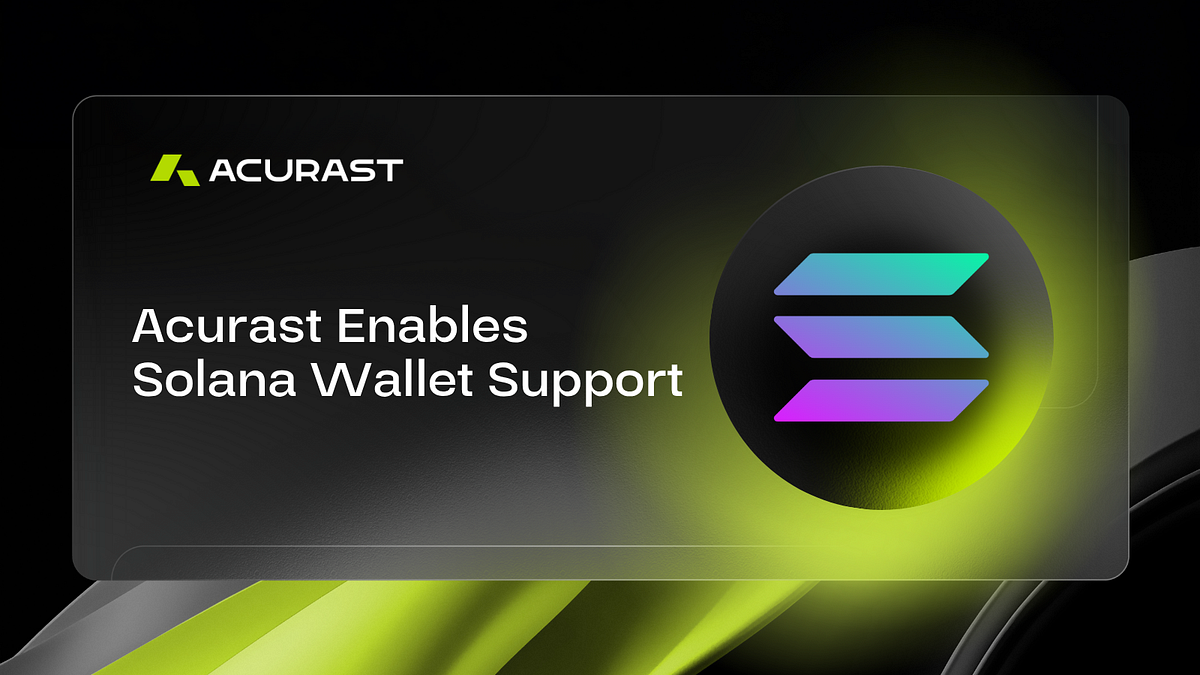
6 days ago
Acurast Integrates Solana Wallet Support to Enhance Decentralized Compute AccessibilityAcurast, a pioneering decentralized compute network based in Zug, Switzerland, has recently announced the integration of Solana Wallet support into its Android and iOS applications. This significant update aims to simplify the onboarding process for new contributors, allowing them to utilize wallets like Phantom to connect their smartphones and provide compute power while earning rewards. With this enhancement, Acurast is not only expanding its accessibility but also reaching a broader audience within the web3 ecosystem. Co-Founder Alessandro De Carli emphasized the importance of inclusivity and ease of access in decentralized computing, stating that the future must be fast and user-friendly.
The core mission of Acurast is to redefine cloud computing by transforming everyday smartphones into secure, decentralized compute nodes. Leveraging Trusted Execution Environments (TEEs) found in modern mobile devices, Acurast offers a scalable and confidential compute infrastructure that operates independently of centralized data centers. With over 65,000 active phones contributing to the network and processing 250 million transactions across 130+ countries, Acurast has established itself as the world's most decentralized compute network, showcasing the potential of community-driven technology.
The integration of Solana Wallets is particularly noteworthy due to Solana's reputation as a fast and cost-effective blockchain ecosystem with a growing user base. This development allows users to quickly connect their wallets to the Acurast Hub, onboard their devices in minutes, and securely provide compute resources. The latest versions of Acurast Core and Acurast Lite are now available on both the Play Store and App Store, making it easier than ever for users to join the movement towards a resilient and community-powered compute network, especially in light of vulnerabilities in traditional cloud infrastructure.
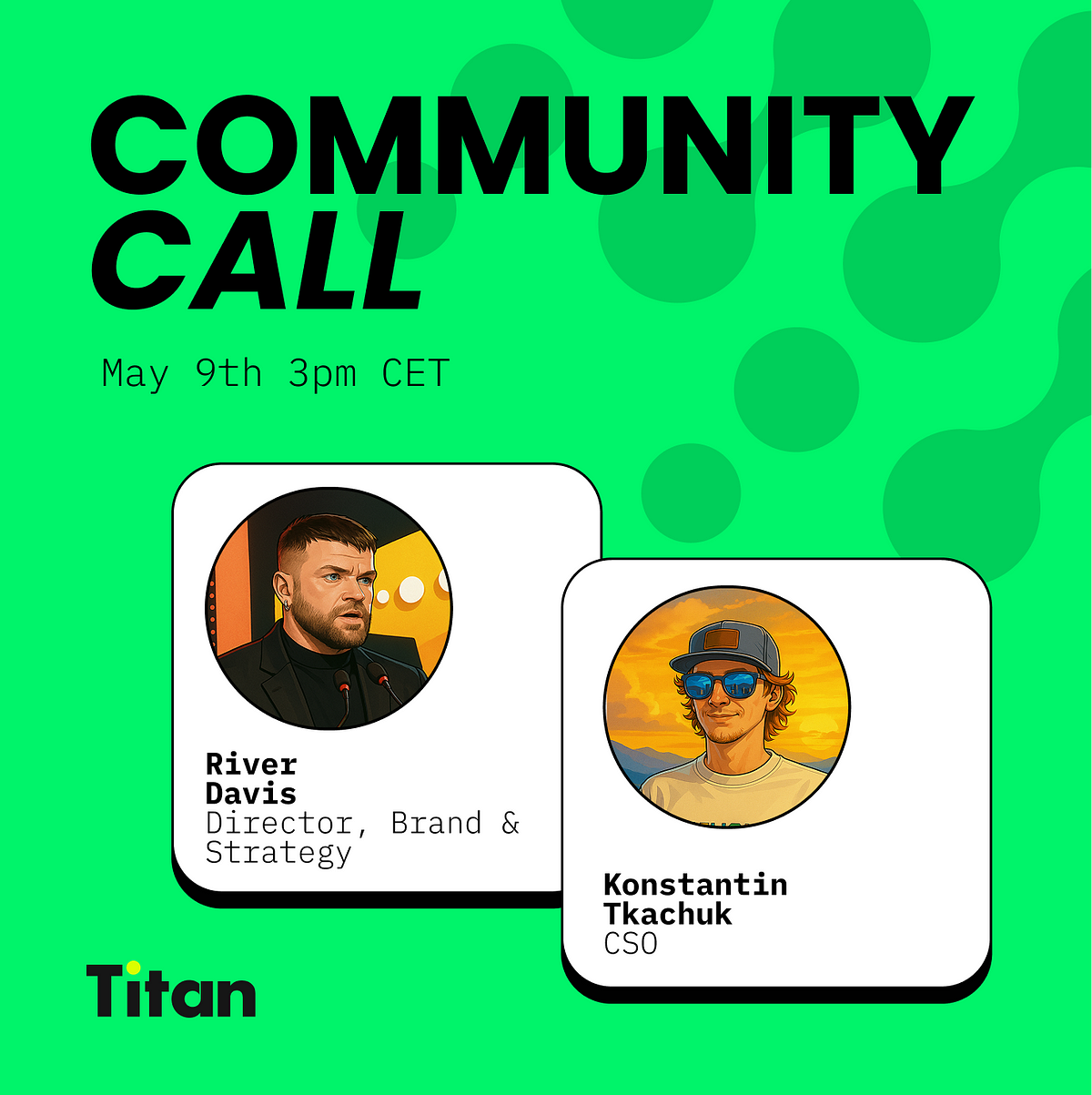
6 days ago
Titan Network's Community Space AMA Highlights Roadmap and Mainnet PreparationOn April 11, 2025, Titan Network held a significant Community Space AMA, focusing on its roadmap progress, technical upgrades, and opportunities for builders and contributors. The session featured project announcements, comprehensive answers to community-submitted questions, and a clear outlook for the path to the mainnet. Key topics included the finalized roadmap, which outlines essential steps leading to the mainnet launch, such as the release of the technical whitepaper, tokenomics paper, exchange pre-approvals, Series A fundraising, codebase finalization, and audit processes.
Titan Network is gearing up for a mainnet launch this year, emphasizing the importance of a secure, fully audited, and functionally complete rollout. The AMA also highlighted updates on Testnet 4, which is now accessible on Windows, allowing for easier node setup. Additionally, the new L1 node optimization plan promises increased rewards for compliant nodes post-mainnet. With TNT4 staking surpassing $1 million in staked tokens and a new cross-chain bridge enabling staking between Solana and Titan chain, the ecosystem is expanding rapidly. The team is also working on merging Testnet 3 and 4, although no specific date has been set yet.
In terms of functionality and infrastructure, Titan's app is undergoing significant upgrades, including UI unification and intuitive node management. The team is exploring ambitious use cases, such as providing CDN infrastructure for major Web2 platforms. Future plans include attending global Web3 events and exploring partnerships in gaming and virtual worlds. The AMA also touched on tokenomics, with plans for dynamic reward adjustments, potential token burns, and governance tools post-mainnet. Community involvement is encouraged through various initiatives, including testing features, content creation, and a potential regional ambassador program, ensuring that Titan Network remains engaged with its user base.

10 days ago
Comparing Web3 Cloud Solutions: Phala Cloud, Akash Network, and FleekIn the rapidly evolving landscape of Web3 cloud solutions, selecting the right platform is crucial for the success of your project. This article compares three notable options: Phala Cloud, Akash Network, and Fleek, each catering to different needs. Phala Cloud focuses on privacy-preserving computation with TEE-backed GPU enclaves, making it ideal for secure AI applications. Akash Network offers a decentralized compute marketplace, perfect for machine learning training and scalable backends. Meanwhile, Fleek specializes in edge and static hosting, providing a user-friendly experience for deploying frontend applications. Understanding these platforms' strengths can guide developers in making informed decisions based on their unique requirements.
The architecture and core features of these platforms highlight their distinct technical foundations. Phala Cloud utilizes peer-to-peer enclaves for execution, ensuring a high level of confidentiality with on-chain attestation. Akash Network operates through a container marketplace orchestrated by Kubernetes, allowing for flexible resource allocation. Fleek, on the other hand, focuses on edge hosting and static site deployment, offering minimal backend trust features. Each platform has its own key management approach, with Phala emphasizing self-custodied keys, while Akash relies on provider-managed key stores. These differences are essential for developers to consider when aligning their project needs with the right cloud solution.
Finally, the cost models and tooling available on each platform further differentiate them. Phala Cloud operates on a prepaid credit system, providing predictable pricing for users. Akash Network's spot bidding model introduces volatility but can lead to significant savings for compute-intensive tasks. Fleek offers a free tier, making it accessible for small-scale projects. Developers should also consider the tooling and integrations each platform provides, as these can impact the ease of deployment and ongoing management. By leveraging the strengths of Phala, Akash, and Fleek, developers can create resilient and efficient Web3 applications tailored to their specific needs.
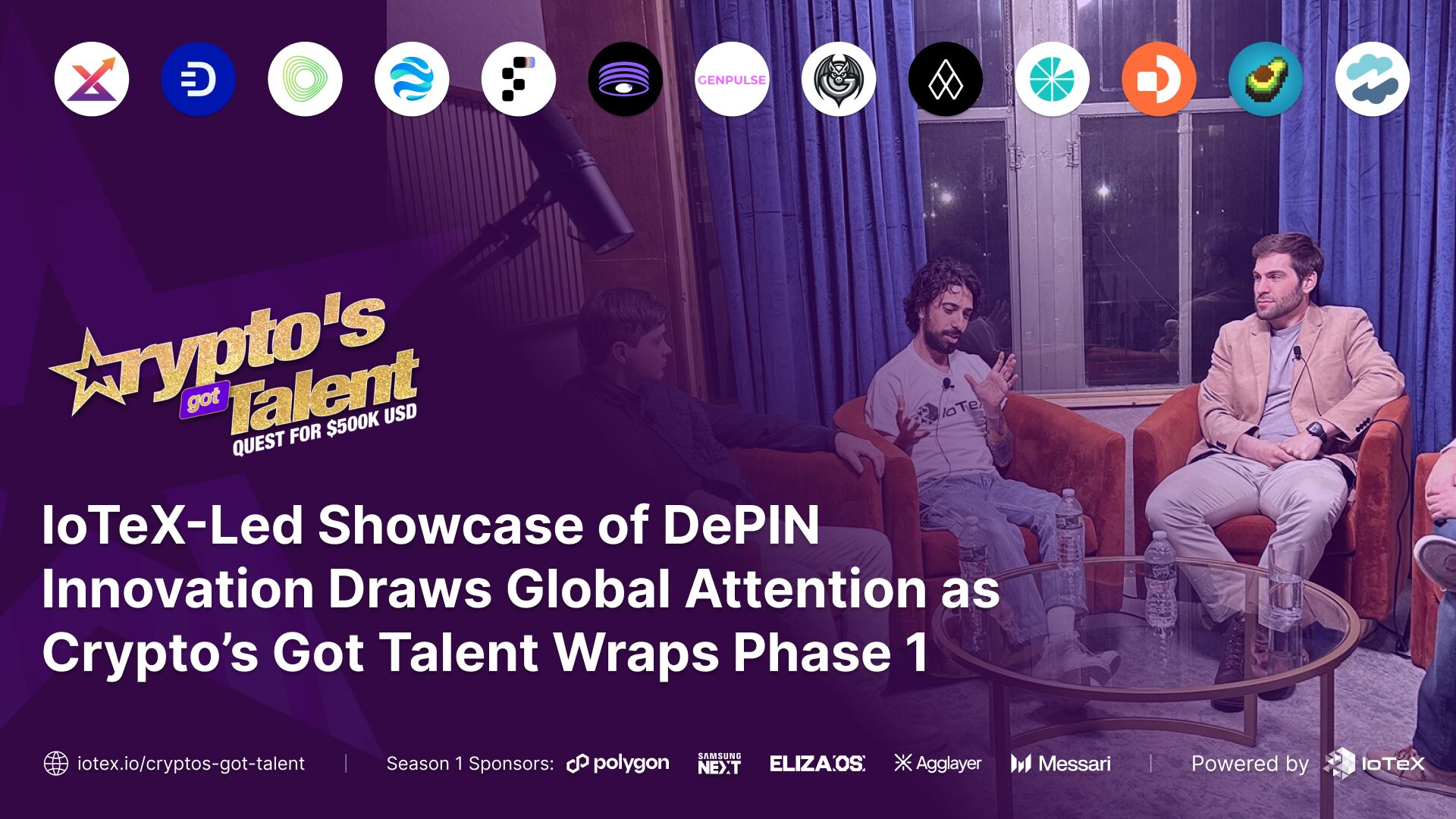
20 days ago
Crypto’s Got Talent Concludes Phase 1, Showcasing DePIN InnovationsOn April 30, 2025, Crypto’s Got Talent (CGT) concluded its first phase, showcasing a groundbreaking live talent show dedicated to the Decentralized Physical Infrastructure Networks (DePIN) movement. Powered by IoTeX in partnership with Polygon Labs and ElizaOS, CGT has redefined the traditional grant process by offering enhanced visibility, transparency, and community engagement. The event garnered significant attention, with over 190,000 impressions and 40,000 live views per episode, culminating in nearly 3,000 community votes. Eleven exceptional projects have progressed to Phase 2, where they will present detailed demos for a chance to secure a $500,000 grant.
CGT is not merely a talent show; it serves as a global launchpad for innovators and creators. Jing Sun, Co-Founder of IoTeX, emphasized the importance of this platform, stating that it connects real-world problems with innovative solutions. The semi-finalists, including Nubila, DeCharge, and JamGalaxy, were evaluated by prominent figures in the Web3 ecosystem, such as venture capitalists and DePIN experts. Giuseppe De Luca, Head of Developer Relations at IoTeX, highlighted the significance of developers in the Web3 landscape, noting that CGT provides them with a vital platform to transform their ideas into impactful movements.
As Phase 2 approaches, live-streamed demos and in-depth Q&A sessions will allow semifinalists to showcase their projects' market fit and deployment strategies. Evaluations will focus on technical feasibility and real-world adoption potential, with input from both community members and industry leaders. With support from notable organizations like Messari and Samsung Next, CGT is poised to become a premier stage for emerging DePIN startups, fostering innovation and collaboration in the blockchain space.
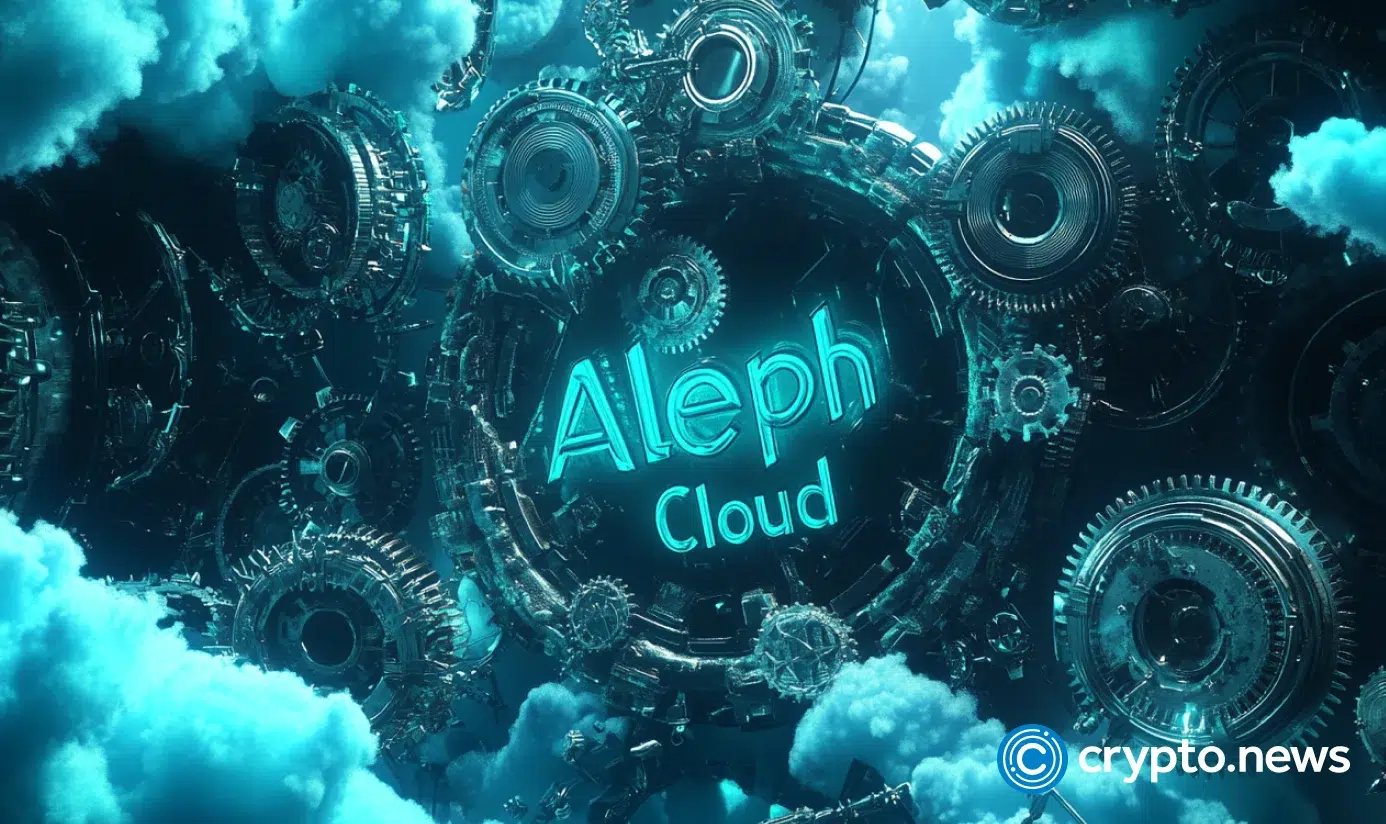
a month ago
Aleph.im Rebrands to Aleph Cloud, Launches $1 Million Accelerator for Web3 StartupsAleph.im, a prominent player in decentralized infrastructure, has officially rebranded as Aleph Cloud, marking a significant evolution in its service offerings. This transformation, announced on April 23, reflects the company's ambition to become a comprehensive decentralized cloud provider. The rebranding comes with an expanded product suite that includes decentralized compute, storage, virtual machines, and GPU resources, all aimed at supporting next-generation Web3 and AI applications. In conjunction with this rebrand, Aleph Cloud has introduced a $1 million startup accelerator program designed to assist Web3 builders and startups in moving away from centralized cloud services like AWS and Google Cloud, which currently dominate the blockchain infrastructure landscape.
The newly launched accelerator program aims to provide essential resources such as compute credits, storage, and technical support across various ecosystems, including Ethereum, Base, Solana, BSC, and Avalanche. Jonathan Schemoul, CEO of Aleph Cloud, emphasized the importance of decentralization in blockchain applications, stating that reliance on centralized services poses risks. The program is structured to support early-stage developers by offering free access to cloud services for projects with a tangible product or proof of concept, thus fostering a thriving ecosystem of decentralized applications.
Aleph Cloud’s strategy positions it as a competitor in the growing market for decentralized infrastructure, where it faces established players like Filecoin and Akash. Schemoul highlighted the platform's unique all-in-one design, which allows users to manage compute, storage, and hosting through a single interface. With a focus on compliance and data privacy, Aleph Cloud operates as a GDPR-compliant, chain-agnostic platform, ensuring that neither the company nor its node operators can access stored data. This commitment to decentralization and user privacy sets Aleph Cloud apart as it seeks to redefine the cloud services landscape for Web3 and AI developers.
Signup for latest DePIN news and updates